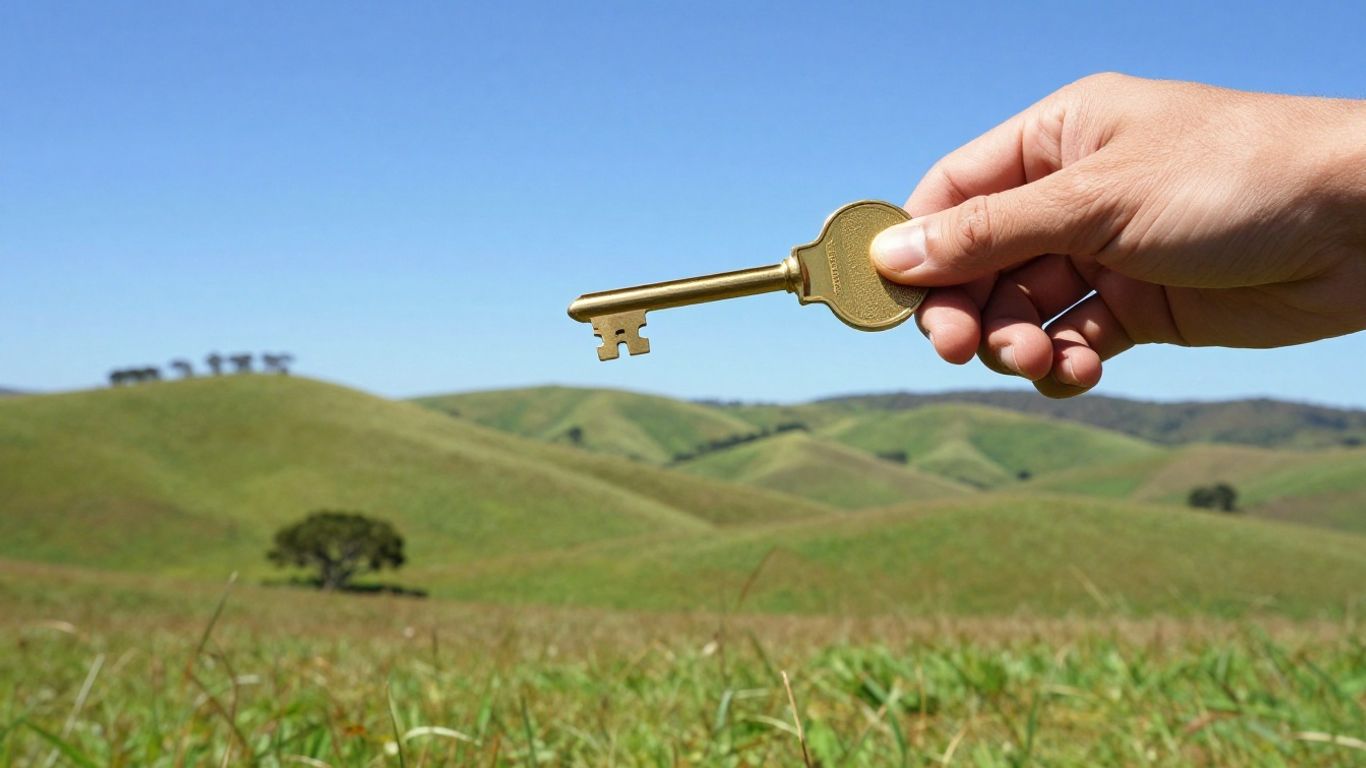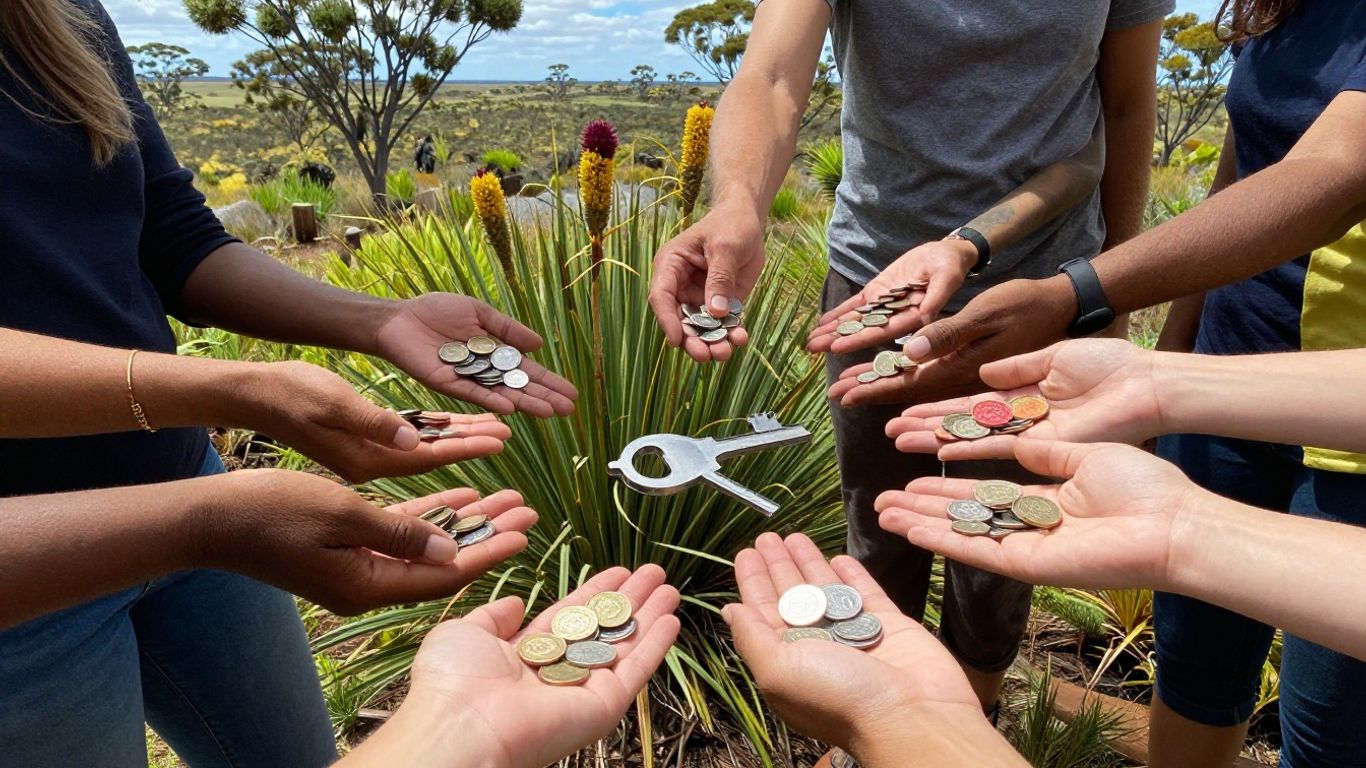G’day, future business owners! Thinking about starting something new in Australia in 2025? You’ve landed in the right spot. This article is your guide, helping you find some great best business ideas australia. We’ll talk about what people really want, how to get your stuff out there online, and some smart ways to get your venture off the ground. No worries, we’ll keep it simple, so you can get cracking on your dream business.
Key Takeaways
- Chat with your customers a lot. Their thoughts are like gold, showing you what to do better or what new things to offer.
- Always be on the lookout for new tech. Things like AI or virtual reality can really shake up your business and keep you ahead.
- Think about selling your stuff overseas. There might be a big market out there just waiting for what you’ve got.
- Keep an eye on the rules and laws for businesses. They change, and you need to change with them to stay in the game.
- Don’t be afraid to try new things and get creative. Sometimes the best ideas come from just messing around and thinking outside the box.
1. Handcrafted Goods Online
There’s a real buzz around handmade stuff these days, and it’s only getting bigger. People want things that are unique, that have a bit of soul, not just mass-produced stuff you can find anywhere. If you’re good at making things – whether it’s jewellery, ceramics, art, or even pet supplies – selling online is a great option. Setting up an online shop for your handcrafted items is easier than ever, and the demand for bespoke products is only growing. You can reach customers all over Australia, and even overseas, without needing a physical shopfront. Think about what makes your creations special. Is it the materials you use? Your unique design style? The story behind each piece? That’s what’ll hook people in.
Selling your stuff on places like eBay or Amazon Australia can get your products in front of heaps of potential customers you might not reach otherwise. It’s like having a shopfront in a massive, busy shopping centre, but without the huge rent.
Here’s why it works:
- Built-in audience: These platforms already have millions of users looking to buy things.
- Easy setup: Most marketplaces make it pretty straightforward to list your products.
- Trust factor: Customers often feel more secure buying from established platforms.
- Reduced marketing effort: The marketplace does a lot of the heavy lifting for getting eyes on your products.
It’s not just about making something pretty; it’s about creating a brand that tells a story. People connect with authenticity, and that’s what handmade goods offer. Focus on quality, good photos, and clear descriptions, and you’ll be laughing.
2. Recycled Materials
Okay, so everyone’s banging on about being eco-friendly these days, right? Well, that’s not just a fad; it’s a proper opportunity. Getting into recycled materials is a ripper idea for a business in 2025. People are actually willing to pay more for stuff that doesn’t trash the planet, which is bonza for your bottom line.
Think about it: less waste, more dosh.
Here’s a few ideas to get your noggin joggin’:
- Upcycled Furniture: Taking old bits of timber or metal and turning them into trendy furniture. There’s a market for sustainable product lifecycle management that’s for sure.
- Recycled Fashion: Turning old clothes or fabrics into new, stylish outfits. Op shops are already doing it, but you could take it to the next level.
- Eco-Friendly Packaging: Making packaging out of recycled cardboard or biodegradable materials. This is a big one, especially with all the online shopping going on.
It’s not just about making a quick buck; it’s about building a business that actually does some good. Customers appreciate that, and it can make all the difference in the long run.
Let’s look at some potential costs and profits:
| Item | Cost per Unit | Sale Price per Unit | Profit per Unit |
|---|---|---|---|
| Recycled Plastic Bag | $0.10 | $0.50 | $0.40 |
| Upcycled Coffee Table | $50 | $200 | $150 |
| Recycled T-Shirt | $5 | $30 | $25 |
It’s a no-brainer, really. Jump on the biodegradable packaging bandwagon and you’ll be laughing all the way to the bank.
3. Solar Panels
Alright, let’s talk about solar panels. It’s not exactly a new idea, but the tech keeps getting better, and Aussies are becoming more aware of their energy consumption. Plus, with those power bills always creeping up, solar energy innovations are looking pretty good to a lot of people.
- Installation and Maintenance: You could start a business installing solar panels for homes and businesses. It’s not just about slapping panels on a roof; you need to know your stuff about electrical systems and safety. Regular maintenance and repairs are also a must.
- Solar Panel Cleaning Services: Dust, bird droppings, and general grime can reduce the efficiency of solar panels. A cleaning service could be a winner, especially in rural areas where dust is a big problem.
- Consulting and Energy Audits: Help people figure out if solar is right for them. This involves assessing their energy needs, the suitability of their property, and the potential savings. It’s about giving them the facts so they can make an informed decision.
The government is still offering incentives for solar installations, which makes it an even more attractive option for homeowners. Keep an eye on those policies, though, because they can change, and that can affect demand.
I reckon the key is to find a niche. Maybe focus on a particular type of customer, like farmers or small businesses. Or specialise in a certain type of solar panel. Just doing something a bit different could help you stand out from the crowd. It’s all about finding your angle in the Australian market.
4. Artificial Intelligence
AI is no longer just a buzzword; it’s becoming a practical tool for businesses of all sizes. From automating tasks to providing better customer service, AI offers a range of possibilities for Aussie entrepreneurs. It’s about finding the right application for your specific business needs.
AI can help you work smarter, not harder.
Here are a few ways AI can be implemented:
- AI-powered chatbots for customer service. These can handle common queries, freeing up your staff for more complex tasks.
- Data analysis to understand customer behaviour. This can help you personalise their experience and improve your marketing efforts.
- Automation of repetitive tasks. This can save you time and money, allowing you to focus on growing your business.
It’s like having a super-efficient assistant who never sleeps. You just need to figure out how to best use their skills.
Consider these points when thinking about AI:
- Cost: AI solutions can range from affordable to quite expensive, so it’s important to factor this into your budget.
- Integration: How easily will the AI solution integrate with your existing systems?
- Training: Will you need to train your staff to use the AI solution effectively?
AI is changing the game, and businesses that embrace it will have a significant advantage. It’s worth exploring how AI can help you find successful small business ideas and take your business to the next level.
5. Virtual Reality

Virtual Reality (VR) is no longer just for gaming, mate. It’s shaping up to be a serious contender in several business areas here in Oz. Think training, design, and even remote collaboration. It’s not just a gimmick; it’s about to change how we do things.
VR is set to revolutionise business training by 2025. Imagine apprentices learning to weld without wasting materials, or surgeons practising complex operations risk-free. The possibilities are huge, and Aussie businesses are starting to catch on. business training is about to get a whole lot more immersive.
Here’s a quick look at some potential applications:
- Training and Simulation: Safer and more cost-effective training environments.
- Design and Prototyping: Visualising products in 3D before physical creation.
- Remote Collaboration: Virtual meetings and workspaces for distributed teams.
VR isn’t just about fancy headsets. It’s about creating experiences that can improve efficiency, reduce costs, and open up new possibilities for businesses of all sizes. It’s an investment in the future, and those who get in early stand to gain the most.
6. Online Presence
Alright, so you’ve got a ripper business idea. Now what? In 2025, having a solid online presence isn’t just a bonus, it’s absolutely essential. Think of it as your digital handshake – it’s gotta be good! People are online searching for everything, from tradies to that perfect gift. If you’re not easily found, you’re missing out on a heap of potential customers.
Your online presence is often the first interaction a potential customer has with your business.
Think of your website as your digital shopfront. It needs to be easy to use, look good on any device, and tell your story. Don’t just throw up a basic page and hope for the best. Invest in good design and make sure it’s easy for customers to find what they need.
Word-of-mouth marketing is still one of the most powerful tools you have. Happy customers will spread the word, but only if they can find you online in the first place!
Here are a few things to keep in mind:
- Make sure your website is mobile-friendly. Everyone’s on their phones these days.
- Use clear and simple language. No one wants to wade through jargon.
- Get your business listed on Australian platforms to make a huge difference.
7. Social Media
Social media is more than just posting photos of your avo toast; it’s a serious tool for connecting with your customers and building a brand. You can’t just chuck up any old thing and expect it to work, though. You need a plan. Think about where your target audience hangs out online. Are they glued to Facebook, scrolling through Instagram, or making TikToks? Tailor your content to suit those platforms.
- Use eye-catching pictures and videos.
- Write snappy captions.
- Always include a clear call to action.
And don’t forget to keep an eye on how things are going! See what’s working and what’s not, and tweak your approach as needed. You might even think about getting a social media manager to handle it all for you.
Word-of-mouth is still a powerful tool. Happy customers will tell their mates, and that’s gold for your business. Make sure you’re giving them something to rave about!
8. Market Research

Alright, so you reckon you’ve got a ripper business idea? Before you chuck all your savings into it, you gotta do your homework. Market research is like having a good yarn with your potential customers before you even launch. It’s about figuring out if there’s actually a demand for what you’re selling. No point flogging a dead horse, right?
Understanding Customer Needs
You can’t just guess what people want; you’ve gotta ask them! Market research helps you figure out what your potential customers are actually looking for. Think of it like this: if you’re planning a barbie, you wouldn’t just buy a mountain of snags without checking if anyone’s vegetarian, would ya? Business is the same.
- Surveys and Questionnaires: Easy as to set up online these days. Ask specific questions about the problems people face, what they wish they had, or what they’d be willing to pay for.
- Focus Groups: Get a small group of potential customers together and have a chat. See what they get excited about, what makes them groan. It’s a bit more informal, but you can get some gold nuggets of information.
- Social Media Listening: People are always whinging or raving about stuff online. Pay attention to what’s being said in groups, on forums, or even in the comments sections related to your industry. It’s like free customer feedback.
- Competitor Analysis: See what other businesses are doing, especially the successful ones. What are they selling? How are they selling it? What are their customers saying about them? You’re not copying, you’re learning.
It’s not enough to just have a good idea; you need to know if anyone actually wants to buy it. Spending a bit of time upfront figuring out what your potential customers are after can save you a whole lot of grief and money down the track. Don’t skip this bit; it’s crucial for any profitable business ideas you might have.
Identifying Untapped Niches
Once you’ve got a handle on what people want, it’s time to find a niche. This is where you can really shine. A niche is a specific area of the market that’s not being fully served. Maybe there’s a gap in the market for eco-friendly cleaning products, or perhaps there’s a demand for personalised pet accessories. The key is to find something that’s not already saturated with competitors. Think about your own skills and interests. What are you good at? What do you enjoy doing? Can you combine your passions with a market need to create a unique business idea?
Networking for Local Insights
Now, you can do all the online research in the world, but nothing beats having a yarn with real people. Networking isn’t just about handing out business cards; it’s about building relationships and getting the inside scoop. Australia’s a pretty friendly place, and most people are happy to share a bit of their experience if you’re genuine.
- Industry Events: Look up local trade shows, conferences, or even small business meet-ups. Go along, listen to the speakers, and chat to people. You never know who you might meet or what you might learn.
- Local Business Groups: Join your local chamber of commerce or other business groups. These are great places to meet other business owners and learn from their experiences.
- Mentors: Find someone who’s been there, done that, and is willing to share their knowledge with you. A good mentor can provide invaluable advice and guidance.
9. Overseas Sales
So, you’ve got a ripper business going here in Oz, eh? Ever thought about taking it global? It might sound like a massive leap, but with the right approach, selling overseas can seriously boost your bottom line. It’s not all sunshine and lollipops, though. You’ll need to suss out different markets, understand their rules, and sort out the logistics. But the potential rewards? Huge.
One of the biggest hurdles is understanding the different markets. What sells like hotcakes here might flop overseas. Do your homework! Find out what the local trends are, what the competition is like, and what the customers actually want. Don’t just assume that what works in Sydney will work in Singapore.
Think about it this way: you wouldn’t wear thongs to a black-tie event, would you? Same goes for your business. Tailor your approach to suit the local culture and customs.
Here’s a few things to keep in mind:
- Research, research, research: Seriously, can’t stress this enough. Know your market inside and out.
- Localise your marketing: Translate your website, adapt your ads, and speak the local lingo.
- Sort out the logistics: Shipping, customs, and payment gateways – it can be a real headache. Get some expert advice.
Expanding your reach can be achieved by exploring profitable business opportunities that have a global appeal.
Here’s a quick look at some potential markets:
| Market | Potential Interest | Key Considerations |
|---|---|---|
| New Zealand | Similar culture, close proximity | Shipping costs, customs |
| Southeast Asia | Growing middle class, demand for quality | Cultural differences, logistics |
| Europe | High purchasing power, niche markets | Strict regulations, competition |
| North America | Large consumer base, diverse needs | Market saturation, time zones |
10. Client Processes Automation
Okay, so you’re run off your feet. We’ve all been there. But what if you could, like, not be? That’s where client processes automation comes in. It’s all about using tech to handle the boring, repetitive stuff so you can focus on, you know, the actual business.
Automating client processes can seriously free up your time and resources. Think about it: less time spent on admin, more time spent on growing your business. Sounds pretty good, right?
Here’s a few things to consider:
- Customer Onboarding: Automate the process of bringing new clients onboard. Think digital forms, automated welcome emails, and streamlined account setup. No more paper mountains!
- Appointment Scheduling: Ditch the back-and-forth emails and let clients book appointments themselves through an online system. Saves everyone time and hassle.
- Invoice Generation and Payment Reminders: Automate the creation and sending of invoices, as well as payment reminders. Get paid faster and with less effort.
- Feedback Collection: Automatically send out surveys or feedback forms after a project is completed. Get valuable insights into what you’re doing well and where you can improve. This is a great way to improve customer onboarding.
It’s not about replacing the human touch entirely. It’s about using automation to handle the mundane tasks, freeing you up to provide better, more personalised service to your clients. Think of it as giving your business a serious efficiency boost.
Here’s a quick look at how automation can impact your business:
| Process | Time Saved per Week (Estimated) | Potential Cost Savings |
|---|---|---|
| Invoice Generation | 5 hours | $250 |
| Appointment Booking | 3 hours | $150 |
| Customer Onboarding | 7 hours | $350 |
So, yeah, client processes automation is definitely something to think about if you want to work smarter, not harder, in 2025.
Wrapping It Up
So, that’s the lowdown on finding those good business ideas in Australia for 2025. It’s really about looking around, seeing what people need, and then figuring out how you can help. We talked about everything from selling stuff you make yourself to getting your head around new tech. The main thing is to keep your eyes open, be ready to try new things, and don’t be scared to change direction if something isn’t working. Australia’s got heaps of chances for folks who are keen to give it a go, so get out there and make something happen!
Frequently Asked Questions
What are some popular sustainable business ideas in Australia?
There are heaps! Think about businesses that are good for the planet, like selling things made from old stuff or putting up solar panels. People really care about being green these days.
Is selling handcrafted goods online a good idea for 2025?
Absolutely! With more folks shopping online, selling your special, handmade items like jewellery, art, or even custom furniture can be a real winner. There’s a big demand for things with a personal touch.
How important are new technologies like AI and VR for starting a business?
Definitely. Things like AI (Artificial Intelligence) and VR (Virtual Reality) are changing how we do everything. Learning about them and figuring out how they can help your business can give you a massive head start.
Why is market research so important before starting a business?
It’s super important! You need to know what people want and what’s already out there. This helps you find a gap in the market and make sure your business idea will actually work.
How vital is an online presence for a new business in Australia?
Having a strong online presence is super important. This means having a good website, being active on social media, and making sure people can find you easily when they look online. It’s like having a shop that’s open all the time!
What are the common ways to get funding for a small business in Australia?
Common ways to get money for a small business in Australia include getting a loan from a bank, looking for government grants, or even asking friends and family. Sometimes, people use their own savings to get started.





